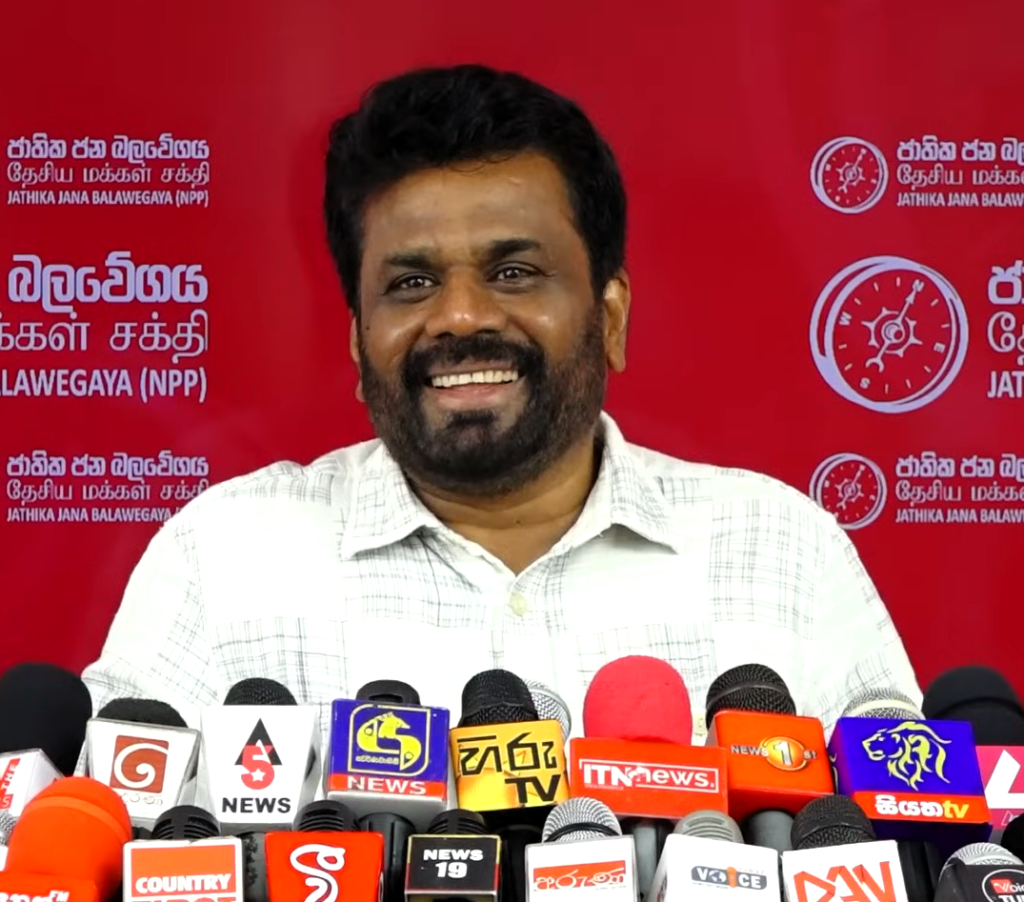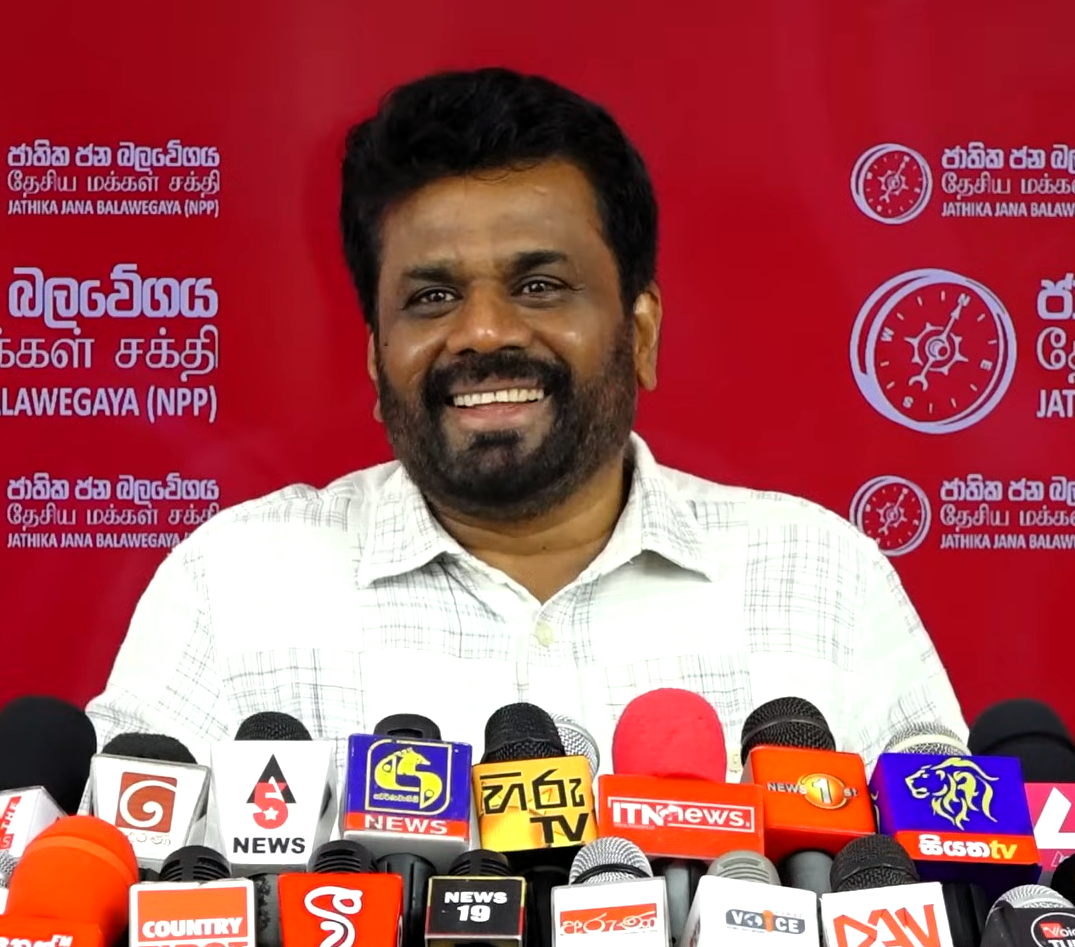By-Ishini Shashipraba SAFN Researcher

“Due to the strategic initiatives and measures implemented by the NPP thus far, the prospects of the party securing a majority in Parliament appear to be quite promising.”
Anura Kumara Dissanayake’s victory in the Sri Lankan presidential election represents a significant turning point for the National People’s Power (NPP), providing an insight into its vision for reforming the long-standing governance structures in Sri Lanka. Dissanayake, alongside Sajith Premadasa, received a substantial number of votes, which were verified on the initial count. However, neither candidate secured more than 50 percent of the majority vote, necessitating a critical second round of voting, in which Dissanayake emerged victorious. This presidential election not only signifies a change in the head of state but also presents an opportunity for the NPP to expand its presence and influence within the political landscape.
Upon assuming office, Dissanayake promptly fulfilled his campaign promise which was to dissolve Parliament, thereby initiating an extensive overhaul of the political framework. Following his inauguration, Dissanayake divided the responsibilities of fifteen ministries among three key ministers: himself, Prime Minister Dr. Harini Amarasuriya, and Minister Vijitha Herath. As President, Dissanayake took charge of several critical ministries, such as Defence, Finance, Energy, and Agriculture, among others. His cabinet reshuffle signified a strategic approach to governance aimed at streamlining decision-making processes.
One significant development under the NPP government has been the decision to reclaim bungalows previously designated for government officials. By doing so, Dissanayake implied a critical step toward eradicating the privileges associated with the political offices.
When it comes to maintaining the economic stability, the government has engaged with the International Monetary Fund (IMF) to discuss the third review of Sri Lanka’s Extended Fund Facility (EFF) program. On the other hand, the public sentiment reflected widespread frustration regarding slow processing times at the passport office, with long queues forming as citizens awaited service despite official promises of resolution.
The newly appointed Prime Minister’s Office clarified on October 26th that there was no conflict regarding the appointment of the University Grants Commission (UGC) Chairman, refuting claims made in a Daily Mirror article. In economic matters, the Ceylon Electricity Board proposed a modest 6% increase in electricity tariffs for December, marking the third adjustment of the year, signaling ongoing challenges in managing public utilities and service provision.
“IMF acknowledged Sri Lanka’s progress regarding economic reforms while asserting the necessity for continued efforts to stabilize the country’s fiscal standing.”
Throughout, President Dissanayake expressed plans for Provincial Council and Local Government elections in 2024 itself, highlighting the administration’s focus on building a resilient political framework essential for reconstructing the nation. The IMF acknowledged Sri Lanka’s progress regarding economic reforms while asserting the necessity for continued efforts to stabilize the country’s fiscal standing. This acknowledgement from a significant international entity reinforced the government’s agenda of reform as part of its broader goal to achieve sustainable economic growth and governance reform.
The measures were popular with the mass electorate and that will probably help the NPP in its bid to gain a majority in the forthcoming parliamentary elections of November 2024.
In light of all these developments, the NPP has to be more sensitive to the needs of the masses. For example, on October 29th , 2024, ministers announced on state television, that funds for raising the wages of public servants had not been accepted. Minister Vijitha Herath, the cabinet spokesperson further stated that raising the wages was still reconcilable but depended on the funds available in the national treasury. Furthermore, the President made a presentation on behalf of the NPP about their first draft budget where higher wages and salaries for the public sector were among the priorities.
“NPP is likely to build on its momentum, positioning itself favourably for the upcoming electoral battles and increasing its chances of commanding a dominant presence in the legislative assembly.”
Due to the strategic initiatives and measures implemented by the NPP thus far, the prospects of the party securing a majority in Parliament appear to be quite promising. These efforts have not only strengthened their position but have also energized their base and garnered significant public support. This outlook suggests that the NPP is likely to build on its momentum, positioning itself favourably for the upcoming electoral battles and increasing its chances of commanding a dominant presence in the legislative assembly.



